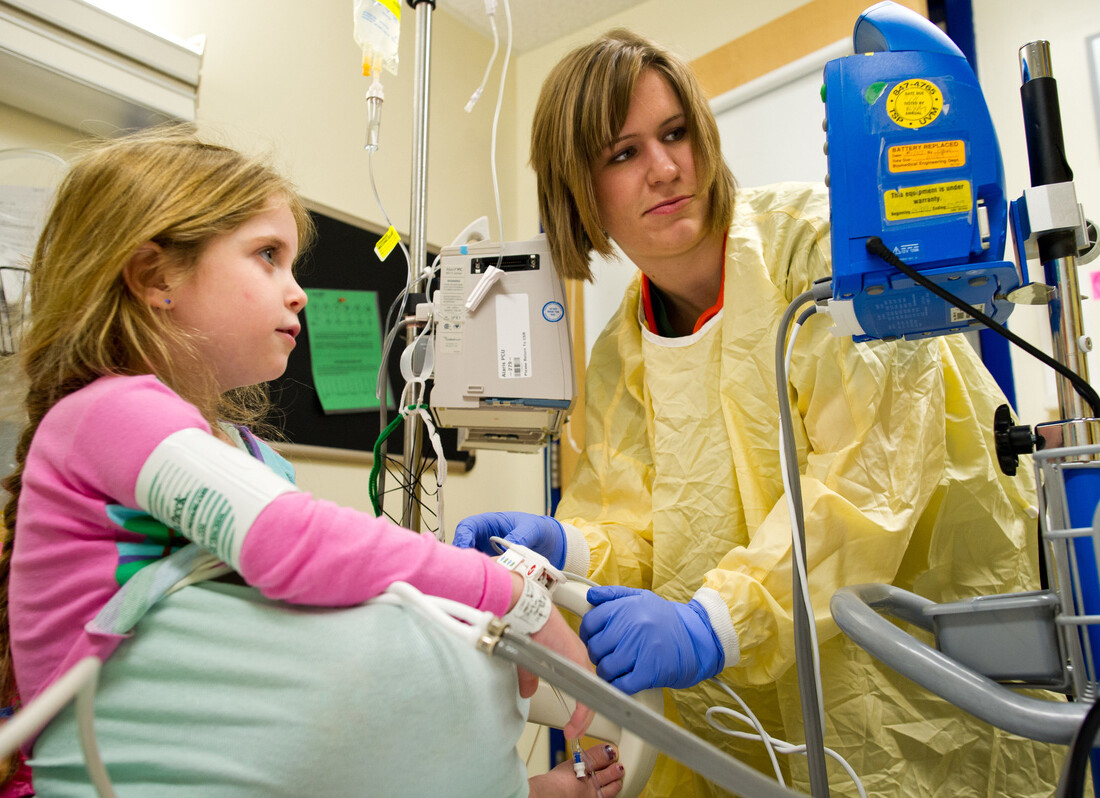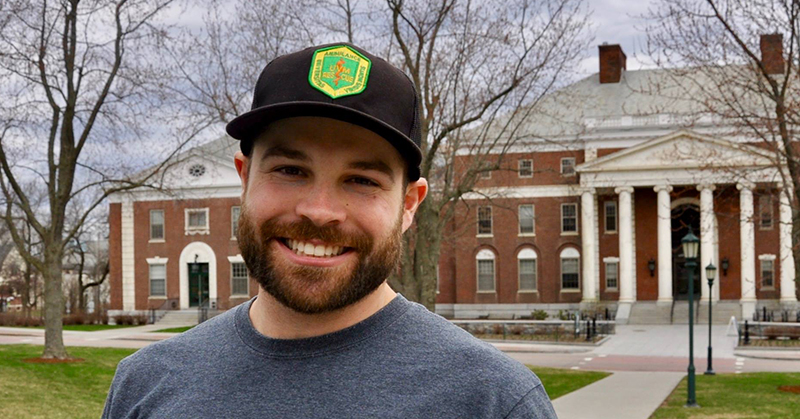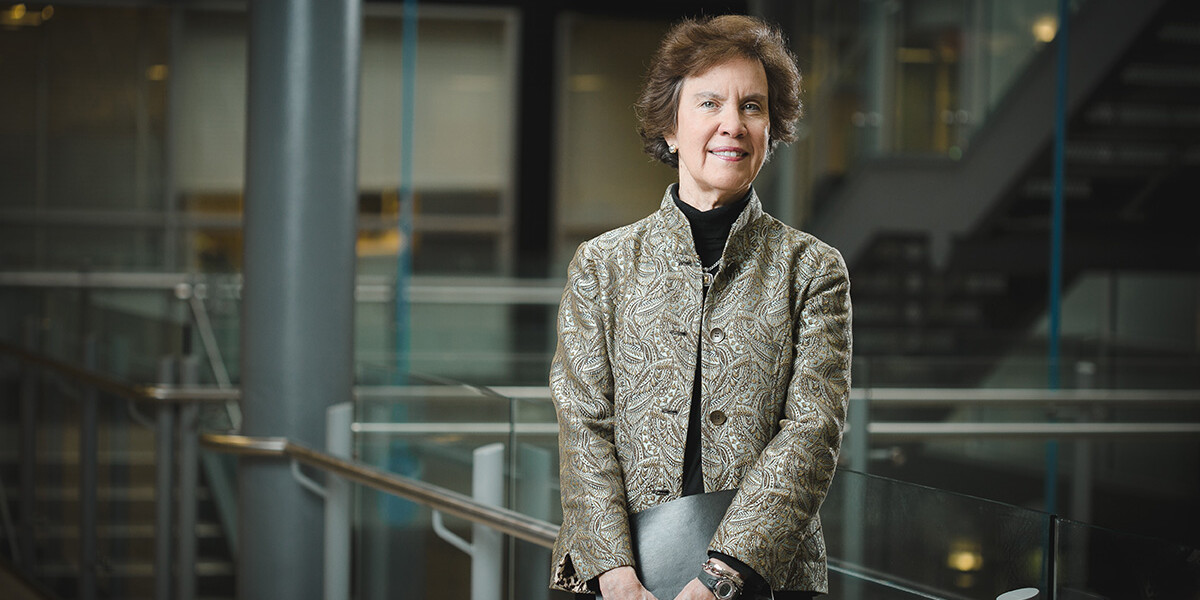For many of Vermont’s registered nurses, obtaining an associate’s degree was often the quickest and most financially feasible way to enter the profession. But after years of working, these same RNs are now seeking higher degrees to gain more pay, responsibility – and a voice in health care reform.
When Vermont RNs were surveyed in 2011 about their academic backgrounds, the largest percentage – 35 percent – indicated that an associate’s degree in nursing had been their first degree, according to University of Vermont Area Health Education Centers (AHEC).
But when those same nurses were asked what their highest degree was at the time of the survey, only 23 percent indicated an associate’s degree in nursing. Over 42 percent had obtained a bachelor’s, master’s or doctoral degree in nursing. (Nursing licensure is separate from academic degree completion, and there are RNs in Vermont with everything from a diploma to a doctorate, the survey shows.)
Online Courses
For Margaret Aitken, who supports students in UVM’s RN to BS Program, those numbers are not surprising. The program allows RNs who seek a bachelor of science in nursing (BSN) to take nursing and non-nursing courses online, at any time of the day or night, while still working and juggling home and family responsibilities. Most students take three years to finish, signing up for two courses per semester.
“We have a lot of nurses in the program who are single parents. Maybe they had to work right out of high school. There are many who raised children and then wanted a career, or people who have changed careers,” said Aitken, a program outreach coordinator in nursing at UVM. “Others went to college and came close to completing a degree, and now they want to become a nurse. Not everyone can take four years out of their life to be a full-time student, so a lot of them moved toward the associate’s degree program first. Now they want to further their educations and pursue a BSN.”
A Shifting Demographic
As health care grows more complex and nurses face more challenges, numerous national professional nursing organizations have recommended that RNs hold BSNs. The Institute of Medicine’s Future of Nursing Report recommends increasing the number of nurses holding a BSN degree or higher to 80 percent by 2020.
Meanwhile, the country faces a nursing shortage and a demographic shift that will see more nurses retiring – and more patients aging and needing health care. And health care reform, Aitken noted, needs more involvement from nurses, the largest single group of professionals in health care. To influence decision-making, however, nurses need more extensive academic knowledge. “Nurses should be able to pick up an article in a journal and be able to talk about it,” she said.
Community, Technology, and Interaction
To enable working nurses to pursue higher-level degrees, many academic institutions have moved their BSN programs online, according to Aitken. UVM’s two-decades-old RN to BS program – one of two such accredited programs in Vermont – made the switch to distance learning in 2004.
“Twenty years ago, it wouldn’t have been possible to have an online program because people didn’t have high-speed Internet access,” Aitkin said. “It’s all about accessibility. It doesn’t matter if there’s three feet of snow on the ground or not, our students out in the rural areas can still participate. They need the flexibility of the online program, but they can still keep that same sense of community and interaction.”
Aitken makes the program manageable for the students, many of whom are in their 40s and 50s. She provides plenty of technology assistance. And she directs students to academic services to brush up on writing or study skills.
Most working nurses discover that the program fits into their lives. Students can jump into the assignments and discussions for the eight required online nursing courses at any time; they simply need to make sure they meet the deadlines for tests and assignments.
The sole on-campus course, Nursing Assessment, is held for just one intensive week during the summer. UVM has contracts with some employers for tuition discounts, UVM can spread out payments and Vermont Student Assistance Corp. offers funding as well. And students can transfer as many as 57 non-nursing credits and 34 nursing credits.
Improving Patient Care
But the program offers another benefit, perhaps not as evident at first: It allows students to reflect on how they can better serve their patients at a higher and more complex level, something that might have not been as easy to envision when pursuing licensure at the beginning of their careers, Aitken said.
“When you’re new, the IV pump is the scariest thing in world,” she said. “When you’re first learning nursing, of course you want to focus on the medication, the bandages, the things that go beep and buzz. It’s hard to talk about the philosophical underpinnings of what you’re doing when you’re really just trying to understand medication. But when you’ve been at the job for 10 years, you’re ready for context. Nurses in the RN to BS Program are in a great place to understand social justice, public health, health care policy and health care reform.”
For more information about UVM’s RN to BS program, visit learn.uvm.edu.





